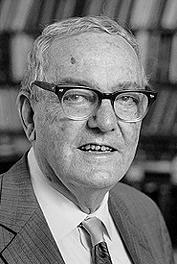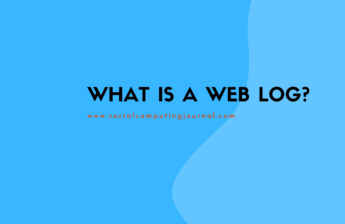A few posts have emerged recently that recapitulate the well-worn arguments of attention scarcity and information overload in the real-time social web. So, here at start of 2010, a new decade, I will try to write a short and sweet counter argument from a cognitive science/anthropology angle.
But first let me recount the two pieces that prodded me to this.
David Armano wrote a piece called The Human Feed: How People Filter Signal From Noise:
In the earlier days of the internet, the Web became a place quickly saturated with information and we needed something to beat the information into submission. Search engines were born and as a result the internet became more productive. Today, the internet is still about information but it’s also about attention. There is a surplus of information, and a meta surplus of marketing in every form. For individuals, we are experiencing the opposite. We have a deficit in attention.
We’ve long exceeded the capacity of information that we can absorb and retain. We all suffer from technology induced attention deficit disorder, bright and shiny object syndrome and short term memory loss.Bookmarks don’t help. Now we need tools like del.icio.us. And of course we need Google more than ever. And there’s once more thing we need. We need each other to make sense of it all. We need a Web with a human touch to help guide us through the fragmented, landscape of the internet. And that’s where the human feed comes in. If you sign up to a service like Twitter, Friendfeed, or even subscribe to the del.ico.us links of real live people who you trust and look to for insights, you’ll find that a wealth of information will be brought right to you vs. you having to go out and hunt for it.
David Armano
Just for history’s sake, the origin of the ‘poverty of attention’ meme was Herbert Simon, way back in 1971:
…in an information-rich world, the wealth of information means a dearth of something else: a scarcity of whatever it is that information consumes. What information consumes is rather obvious: it consumes the attention of its recipients. Hence a wealth of information creates a poverty of attention and a need to allocate that attention efficiently among the overabundance of information sources that might consume it.
Herbert Simon
Likewise, just around the same time as Herbert’s comment, Alvin Toffler wrote Future Shock, in which he suggests that the speed up of modern society was basically driving us crazy, like soldiers suffering from shell shock, now called combat stress reaction. In other words, “too much change in too short a period of time.” One major component of future shock — to which he ascribes most of the major problems of our day — is information overload: too much information to make sense of, with the implied context of a future shock sped-up world.
And, going for the oldest philosophical natterings about this, Diderot, in 1755 wrote,
As long as the centuries continue to unfold, the number of books will grow continually, and one can predict that a time will come when it will be almost as difficult to learn anything from books as from the direct study of the whole universe. It will be almost as convenient to search for some bit of truth concealed in nature as it will be to find it hidden away in an immense multitude of bound volumes.
Denis Diderot by Louis-Michel van Loo
So, Armano has joined that long list of philosophers, suggesting that there is too much to grasp, things are going too fast, and the techniques that we have used in the past are failing.
Another post, this one by Thomas Peterson, makes more or less the same case, although employing the stark metaphor Slaves of the Feed to suggest we have become entrapped by our tools:
Let’s start with what most people probably can agree. Information is accumulating online. The amount of available information is increasing at an exponential rate, some say it doubles every second year. This mean that any illusion of being able to stay up to date with everything that is going on is utopian and has been probably since Guttenberg invented the press.
Most people know this, yet that is exactly exactly what we all seem to be doing.
There is no shortage of content aggregators and aggregators of aggregators, daily developed to give us a better overview of all the sources of information we have subscribed to and found ourselves now depending on.
This has resulted in an endless stream of articles, news, pictures, websites, products, updates, comments of updates and comments to these comments, being delivered to us second by second that each of us have to deal with.
Constantly checking our feeds for new information, we seem to be hoping to discover something of interest, something that we can share with our networks, something that we can use, something that we can talk about, something that we can act on, something we didn’t know we didn’t know.
It almost seems like an obsession and many critics of digital technology would argue that by consuming information this way we are running the danger of destroying social interaction between humans. One might even say that we have become slaves of the feed.
Thomas Petersen
This thread of Western philosophical discourse — attention scarcity, future shock, information overload — has become the conventional wisdom. It seems to be based on unassailable and unshakable logic. But what is that logic?
The framing of the argument includes the unspoken premise that once upon a time in some hypothetical past attention wasn’t scarce, we didn’t suffer from too much information, and we had all the time in the world to reason about the world, our place in it, and therefore to make wise and grounded decisions.
But my reading of human history suggests the opposite. In the pre-industrial world, business people and governments still suffered from incomplete information, and the pace of life always seemed faster than what had gone on in earlier times. At every point in human history there have been philosophers claiming that the current civilization has fallen from an earlier halcyon state, that the ways of the ancients had been lost, and modern innovations and practices threatened to destroy all that was good in society and culture.
So, this is merely the most recent spin on an ancient theme, as the Diderot quote indicates.
Imagine for a moment that it is true — there was an idyllic time back in the Garden of Eden — when we knew all that was necessary to know, and we had all the time in the world to make decisions. Maybe. I am betting it is a shadow of our psychology, the same sort of magical thought that believes in guardian angels and reincarnation. Just a slightly more intellectual superstition.
Another thread of this argument is that human beings don’t have the capacity to winnow out the information we need given the torrent of information streaming past, which is in a sense Diderot’s conjecture. But we really don’t know what we are capable of, honestly.
The human mind is exceptionally plastic, especially when young people are exposed to media and symbolic information systems at an early age. This is why those that take up the study of music, or programming, or karate at a young age, and study for 10,000 hours gain mastery of these skills, which can be accomplished before reaching 20 years of age. And even older people can have significant improvements in cognitive skills — like juggling or flight simulation games — with relative small exposure.
I suggest we just haven’t experimented enough with ways to render information in more usable ways, and once we start to do so, it will like take 10 years (the 10,000 hour rule again) before anyone demonstrates real mastery of the techniques involved.
These are generational time scales, people. And note: the only ones that will benefit in the next ten years will be those that expend the time needed to stretch the cognition we have, now, into the configuration needed to extract more from the increasingly real-time web.
The most difficult argument to make is the following:
- We have always been confronted with a world — both natural and human-made — that offers an infinite amount of information.
- We have devised cultural tools — like written language, mathematics, and the scientific method — to help understand the world in richer ways, over and above our emotional and inbuilt cognitive capabilities.
- We are heading into a post-industrial world where information systems and the social matrix of the web have become the most important human artifact, one that is repurposing everything that has come before.
- We will need to construct new and more complex cultural tools — things like augmented reality, massively parallel social tools, and ubiquitous mobile connected devices — and new societal norms and structures to assist us in using them effectively.
- Many commentators — including Armano and Peterson — allude to the now generally accepted notion that we will have to leverage social systems (relying on social tools) to accomplish some part of the heavy lifting in whatever new schemes we develop for understanding this new world. But it has only been 10 years since we’ve been talking about social tools, and less than five that we had anything like real-time streaming applications or tools involving millions of users. It’s early days.
In the final analysis, I am saying there is no ‘answer’ to those that say we are overloaded, that we are being driven mad by or enslaved to the tools we are experimenting with, or that there is some attention calculus that trumps all other value systems.
Instead, I suggest we continue experimenting, cooking up new ways to represent and experience the flow of information, our friends’ thoughts, recommendations, and whims, and the mess that is boiling in the huge cauldron we call the web.
There is no “answer” since they are asking a false question, one that hides preconceived premises and biases. Starting out with the assumption that we have moved past our abilities to cope with the stream of information, and therefore something has to give, is a bias.
In part, this arises from the desire of economists like Simon to find what is scarce, and ascribe a value to it. Or to media and PR types, who want to control discourse, and fill it with their ‘messages’ and influence social opinion or buying behavior.
But from a cognitive and anthropological viewpoint, these concerns are something like Socrates’ argument that learning to read and write would debase the cognition of those that had become literate. In his era the ability to remember thousands of verses of poetry was the baseline for being enculturated, and he believed that something fundamental would be lost if we were to rely on books instead of our memories. He believed that writing was the fall from a better time, a lesser way to think and understand the world.
But I think that the rise of the social web, just like writing, the printing press, and the invention of money, are not really about the the end of what came before, but instead are the starting point for what comes next: richer and more complex societies. These technologies are a bridge we use to cross over into something new, not a wrecking ball tearing down the old.
There is no golden past that we have fallen from, and it is unlikely that we are going to hit finite human limits that will stop us from a larger and deeper understanding of the world in the decades ahead, because we are constantly extending culture to help reformulate how we perceive the world and our place in it.






